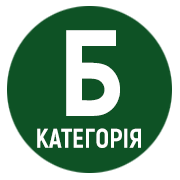POSING THE QUESTIONS WHEN APPOINTING CUSTOMS EXAMINATION OF INTELLECTUAL PROPERTY OBJECTS
Abstract
Abstract. The article considers the importance of the quality of questioning when appointing a customs examination, the procedure and rules for posing such questions, assessing their correctness, shows the algorithm for the correct formulation of the question regarding the appointment of a customs examination. The necessity of updating the methodological recommendations for posing questions to the expert is emphasized, since even the best methodological recommendations are useless if they are not applied in practice. Based on this, the expediency of introducing an appropriate training course and training for customs officials authorized to appoint commodity customs examinations and studies, in particular in the field of valuation of intellectual property, is shown. It is shown that when appointing a customs examination by a customs official, the expert should be assigned a specific task and set the range and content of issues on which the examination should be carried out. At the same time, it is not allowed to raise questions: that go beyond the competence of the expert (this may be grounds for refusal to conduct an examination); for the explanation of which no special expert knowledge is required; are of a legal nature; which may relate to the object of study due to its properties. The algorithm and the sequence of raising the question regarding the appointment of a customs examination, which allows to assess its correctness in accordance with the criteria established by law, which contain a prohibition on the absence of a certain (clear) semantic content in the question, or possible ambiguity (the possibility of interpretation) of the essence of the question, are analyzed. The necessity of formulating qualitative questions in compliance with the theory of their formulation and taking into account the specifics of the questions, taking into account the grounds for their occurrence, as well as the nature of the information the absence of which is indicated by the question (the so-called "whether-question" and "what-question") is proved. The conclusion is made that in order to prevent problems in the interaction of customs authorities and expert institutions in the process of organizing and conducting customs examinations, it is important to take into account the peculiarities of questioning when appointing examinations and to comply with the rules for asking questions to the expert.
References
2. Будз О. Ф. Розвиток управління митним обслуговуванням підприємств : дис. … д-ра філософії : 292 / Національний університет “Львівська Політехніка”. Львів, 2020. 249 с.
3. Варавіна І. А., Самкова О. П., Плотніцька А. В. Проблеми, пов’язані із вирішенням основних завдань при проведенні досліджень у сільському господарстві (сільськогосподарській експертизі). Криміналістика і судова експертиза. 2018. Вип. 63. С. 385-396.
4. Ващук О. П. Проблемні питання психофізіологічної експертизи в кримінальному провадженні. Вісник ОНДІСЕ. 2017. Вип. 2. С. 11-21.
5. Веретун Г. С. Особливості та відмінності понять “комплексна експертиза” та “комплекс експертиз”. Вісник ОНДІСЕ. 2018. Вип. 3. С. 14-17.
6. Види питань та їх класифікація: по формі, функціям і змісту. URL: https://library/read/25322.
7. Головченко Л. М. Про необхідність вдосконалення законодавства про судово-експертну діяльність в Україні. Криминалистика и судебная экспертиза: Междуведомственный научно-методический сборник. 2013. Вып. 58. Ч. 1. С. 5-12.
8. Давидова Д. В. Висновок експерта як процесуальне джерело доказів: окремі аспекти теорії та практики. Південноукраїнський правничий часопис. 2015. № 2. С. 151-154.
9. Маслова А. Б. Органи, що реалізують державну митну політику, як складова системи публічного адміністрування: людиноцентристська концепція трансформації : дис. … докт. юрид. наук : 12.00.07 / Запорізький національний університет. Запоріжжя, 2021. 444 с.
10. Мельник М. В. Інститут митних режимів в митному праві України : дис. … канд. юрид. наук : 12.00.07 / Міжрегіональна академія управління персоналом. Київ, 2016. 251 с.
11. Митний кодекс України : 13.03.2012 р. № 4495-VI (в ред. від 01.08.2022 р.). URL: https:// zakon.rada.gov.ua/laws/show/4495-17#Text.
12. Питання до судового експерта-товарознавця. НСЕО. Незалежна судова експертиза та оцінка. 02.07.2021. URL: https://sudexpert.vn.ua/ua/ a412537-pitannya-sudovogo-eksperta.html.
13. Про затвердження Інструкції про призначення та проведення судових експертиз та експертних досліджень та Науково-методичних рекомендацій з питань підготовки та призначення судових експертиз та експертних досліджень : Наказ Міністерства юстиції України № 53/5 від 08.10.98 р. URL: https://zakon.rada.gov.ua/laws/show/z0705-98#Text.
14. Про зовнішньоекономічну діяльність : Закон України від 16.04.1991 р. № 959-XII (в ред. від 01.08.2022 р.). URL: https://zakon.rada.gov.ua/ laws/show/959-12#Text.
15. Тарасютіна С. В. Особливості товарознавчого дослідження товарів медичного призначення. Теорія та практика судової експертизи і криміналістики. 2019. № 20. С. 424-434. 16. Тіщенко В. В. Криміналістика : підручник. Одеса : Видавничий дім “Гельветика”, 2017. 556 с.



